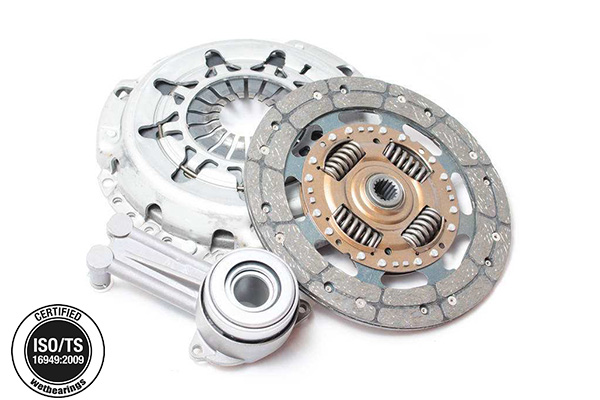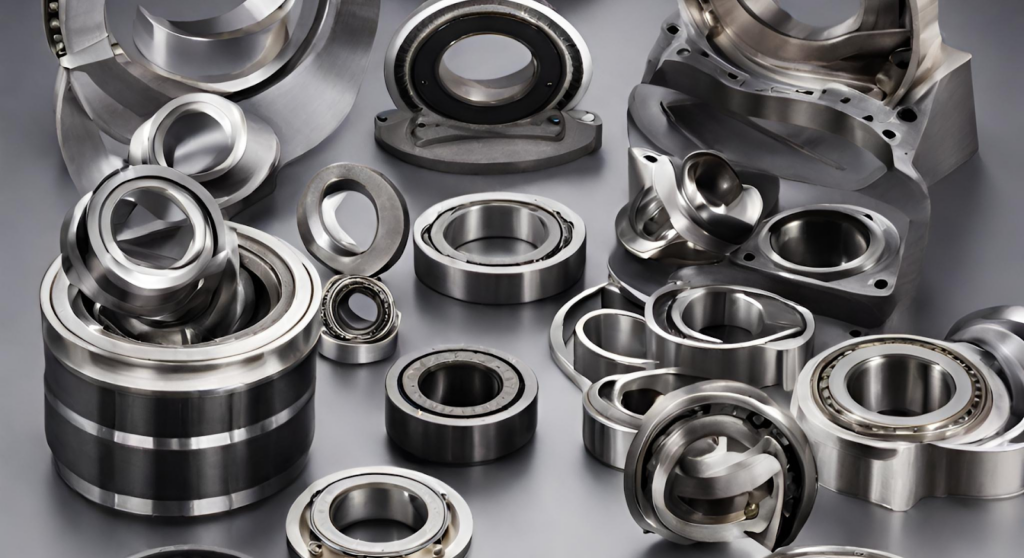Confused about how a clutch release bearing works in your car? Many people find the mechanics of this small but vital part perplexing.
A clutch release bearing[^1], also known as a throwout bearing, transmits the force from your foot on the clutch pedal to disengage the engine from the transmission. It allows you to shift gears smoothly. Without it, you couldn’t change gears! Understanding how a clutch release bearing[^1] works is key to maintaining your vehicle.

Ever wondered how you smoothly shift gears in your car? It’s all thanks to the clutch release bearing[^1]. It sounds complicated, but it really isn’t. Let’s break down what it does and how it works. This will give you a better understanding of your car’s mechanics. Let’s explore the world of the clutch release bearing[^1].
What is the Job of the Clutch Release Bearing?
You are trying to figure out what the clutch release bearing[^1] actually does in your car.
The clutch release bearing[^1]’s primary job is to push against the clutch pressure plate. This action disengages the engine from the transmission. In other words, it allows you to shift gears without grinding or stalling. It’s vital to understand the clutch release bearing[^1] function.
So, what does a clutch release bearing[^1] really do? It’s a small part, but it plays a HUGE role. It is the go-between for your clutch pedal[^2] and the engine. Let’s dive deeper into how it makes this happen!
How the Clutch Release Bearing Disengages the Clutch
- Pressure Plate: The clutch release bearing[^1] presses against the pressure plate[^3]. The pressure plate[^3] is a spring-loaded mechanism. It keeps the clutch disc[^4] tightly engaged with the flywheel.
- Separation: By pressing the pressure plate[^3], the bearing separates the clutch disc[^4] from the flywheel. This interruption breaks the power flow from the engine to the transmission.
- Shifting: With the engine disengaged, you can safely shift gears. There is no risk of damaging the transmission.
I remember the first time I saw a clutch assembly taken apart. It was like seeing the inner workings of a complicated clock. All these parts have to work just right for everything to function smoothly.
Clutch Release Bearing and Smooth Gear Transitions
- Controlled Movement: The clutch release bearing[^1] ensures that the disengagement of the clutch is smooth and controlled. This smooth transition prevents jerky movements or sudden stops.
- Reduced Wear: By allowing a clean separation, the bearing reduces wear and tear[^5] on the clutch disc[^4] and other components.
- Comfort: A properly functioning clutch release bearing[^1] contributes to a comfortable and seamless driving experience.
I once had a car with a bad clutch release bearing[^1]. Every time I shifted, it felt like the car was protesting. It was jerky and noisy. Replacing the bearing made a world of difference.
How Does a Clutch Release Bearing Work Step-by-Step?
You need to understand the step-by-step process of how the clutch release bearing[^1] disengages the clutch as you press the pedal, making the whole process appear effortless.
When you press the clutch pedal[^2], a series of mechanical linkages[^6] push the clutch fork. The fork then pushes the clutch release bearing[^1] against the spinning pressure plate[^3]. This action releases the clutch and allows you to change gears. It’s all about transferring force.
Alright, let’s get into the nitty-gritty. Imagine your foot pressing the clutch pedal[^2]. What happens next? The clutch release bearing[^1] is the key player, and here’s how it works. For more in-depth information, you can check out explanation of clutches on Wikipedia here.
Step-by-Step Process: How the Clutch Release Bearing Works
- Pedal Pressure: You press the clutch pedal[^2] with your foot.
- Linkage Activation: The pedal activates a series of mechanical linkages or a hydraulic system. This system transfers the force to the clutch fork.
- Fork Movement: The clutch fork moves the clutch release bearing[^1] towards the clutch pressure plate[^3].
- Bearing Contact: The release bearing makes contact with the spinning pressure plate[^3].
- Disengagement: The bearing presses against the pressure plate[^3] fingers. This disengages the clutch disc[^4] from the flywheel.
- Gear Shift: With the clutch disengaged, you can shift gears.
- Re-engagement: When you release the clutch pedal[^2], the bearing retracts. The clutch disc[^4] re-engages with the flywheel, and power is restored to the transmission.
I always thought it was magic how the car knew when I wanted to change gears. Then I learned about the clutch release bearing[^1]. It really is an ingenious part of the car.
Key Components Involved in the Clutch Release Bearing System
- Clutch Pedal: The starting point of the process. (You can view a car pedal here).
- Linkages or Hydraulic System: These transfer the force.
- Clutch Fork: This lever pushes the release bearing.
- Release Bearing: The main actor that presses against the pressure plate[^3].
- Pressure Plate: The spring-loaded mechanism that engages and disengages the clutch disc[^4].
I remember helping a friend replace his clutch. Seeing all those components laid out on the garage floor really helped me grasp how everything worked together. It’s an interconnected system. You can learn more about interconnected mechanical systems[^7] at this engineering site.
Factors That Affect Clutch Release Bearing Performance
- Lubrication: Proper lubrication[^8] is crucial for the smooth operation and longevity of the release bearing.
- Wear and Tear: Over time, the bearing can wear out. Wear can cause noise, vibration, and difficulty in shifting gears. Consider reading about general car maintenance that covers the clutch here.
- Adjustment: Proper adjustment of the clutch linkage is essential for the correct engagement and disengagement of the clutch.
I learned the hard way about lubrication[^8]. I didn’t grease the bearing properly. It failed pretty quickly. Now I’m meticulous about lubrication[^8] because a bad clutch release bearing[^1] is no fun.
Understanding how a clutch release bearing[^1] works can help you appreciate the mechanics of your car. It will also help you diagnose potential problems. Remember that a smooth-shifting car is a happy car. A basic understanding of this part will allow you to keep your own car happy! And if you are having clutch issues, see my explainer on how a clutch works.
[^1]: Explore this link to understand the crucial role of the clutch release bearing in your vehicle’s performance.
[^2]: Discover how the clutch pedal initiates the gear-shifting process and its impact on driving.
[^3]: Understanding the pressure plate’s role can enhance your knowledge of clutch mechanics.
[^4]: Gain insights into the clutch disc’s function and its importance in vehicle operation.
[^5]: Learn about the factors contributing to wear and tear to better maintain your vehicle.
[^6]: Learn about mechanical linkages and their role in transferring force within the vehicle’s systems.
[^7]: Understanding interconnected systems can enhance your knowledge of how various car components work together.
[^8]: Explore the significance of lubrication in maintaining vehicle components for longevity and performance.

